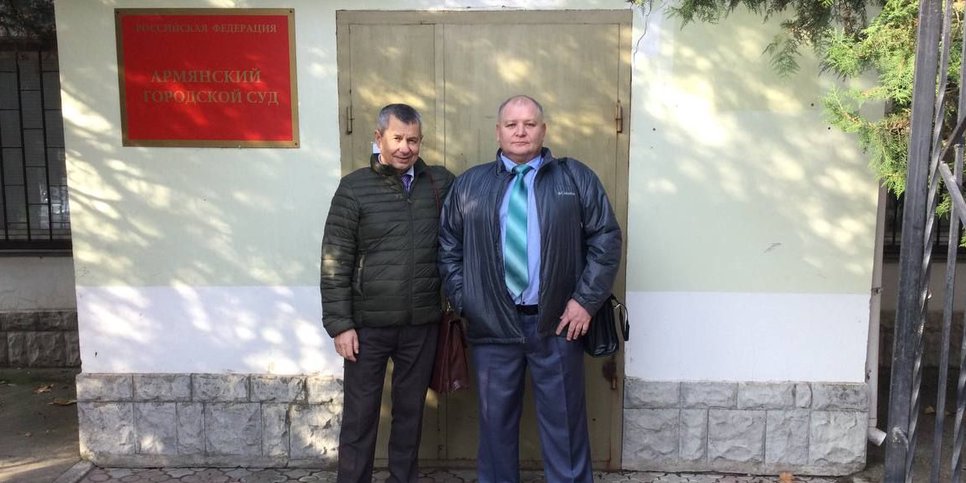Alexandr Litvinyuk and Alexandr Dubovenko near the court building
Alexandr Litvinyuk and Alexandr Dubovenko near the court building
An Appeal in Crimea Upheld the Conviction of Two Believers. They Were Sentenced to Six Years in a Penal Colony for Reading the Bible
CrimeaOn March 16, 2023, the Supreme Court of the Republic of Crimea upheld the verdict against Aleksandr Litvinyuk and Aleksandr Dubovenko. The believers do not admit that they are guilty of extremism, and they have the right to appeal this decision in the cassation court.
Four relatives were allowed to attend the hearing. According to Dubovenko's wife, the appellate court removed part of the additional punishment from the verdict—a ban on engaging in educational activities for a period of five years.
On December 1, 2022, Judge Tatyana Fedeneva of the City Court of the Republic of Crimea sentenced believers to six years in a penal colony for discussing the Bible with friends and for singing religious songs. The court of first instance ignored the motions of the defense and the evidence in favor of the believers, and the documents confirming their innocence disappeared from the case file. During the trial, Judge Fedeneva displayed prejudice against the religion of Jehovah's Witnesses and prevented the lawyer from providing legal assistance to the defendants. At the same time, the witnesses in the case gave the believers positive character references.
Russian law enforcement officers continue to consider Jehovah's Witnesses' religious gatherings and conversations about God as extremism, even though the European Court of Human Rights in 2022 declared criminal prosecution for such actions unlawful. The court decision states: “Only religious statements and actions involving or calling for violence, hatred or discrimination may warrant suppression as being 'extremist.’” (§ 271)


